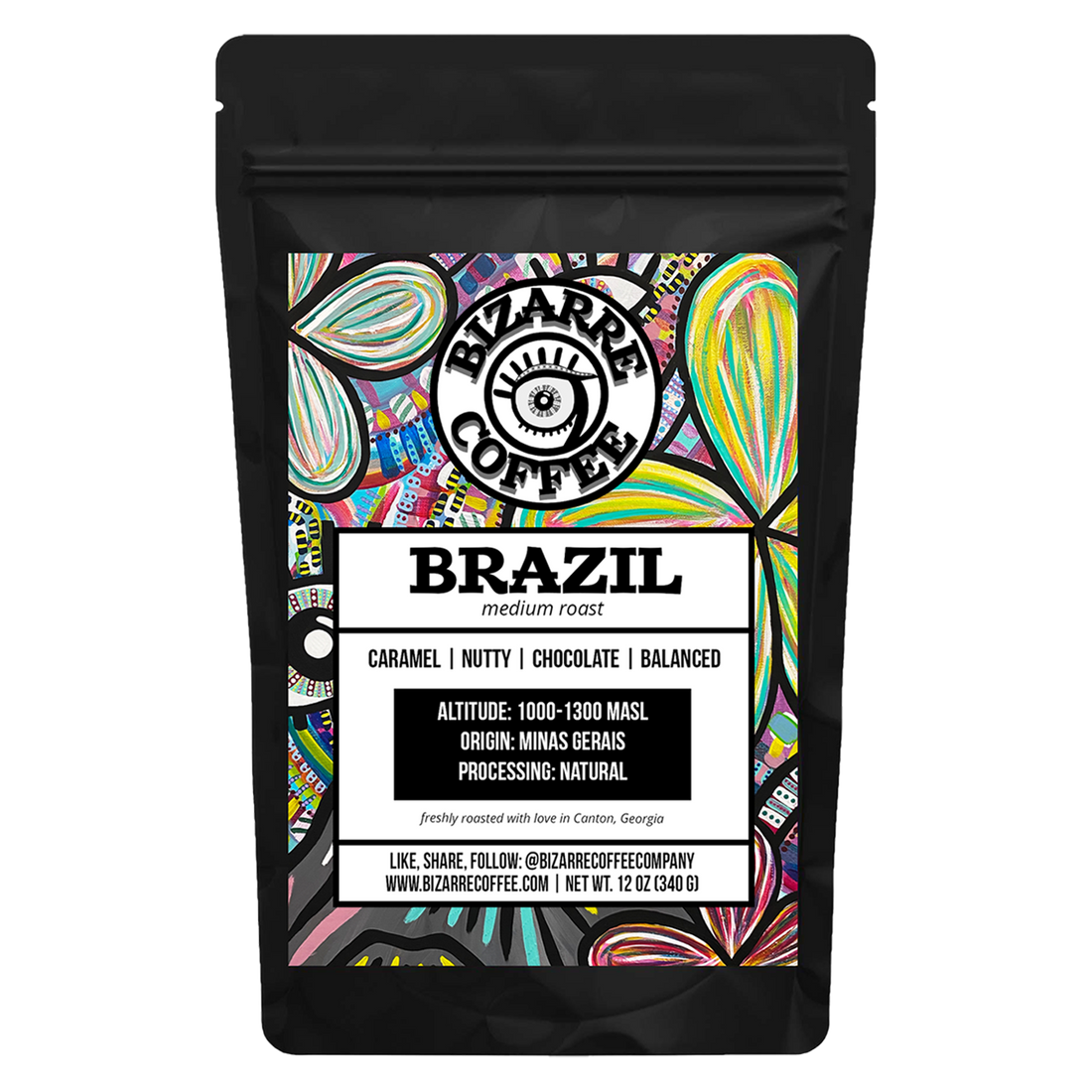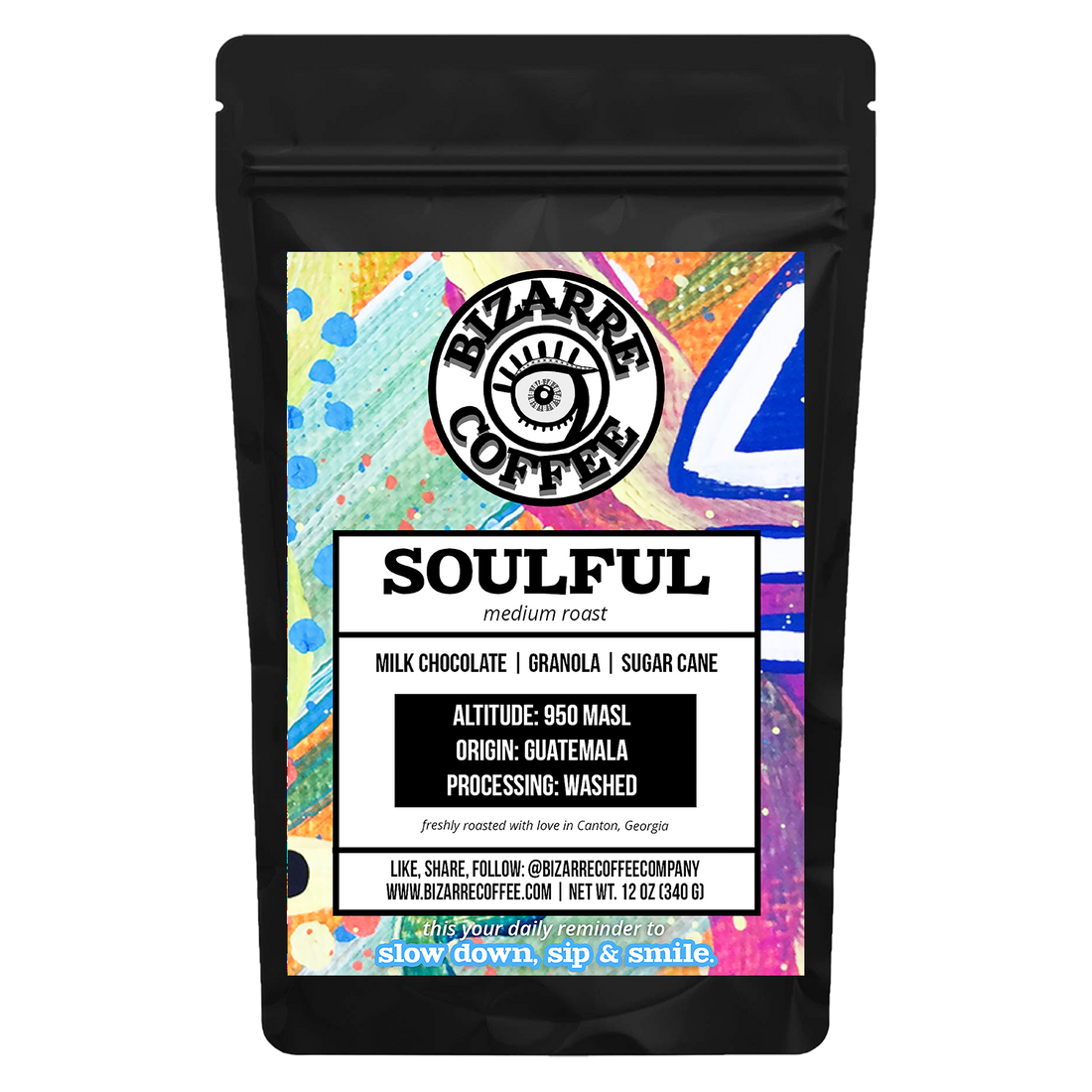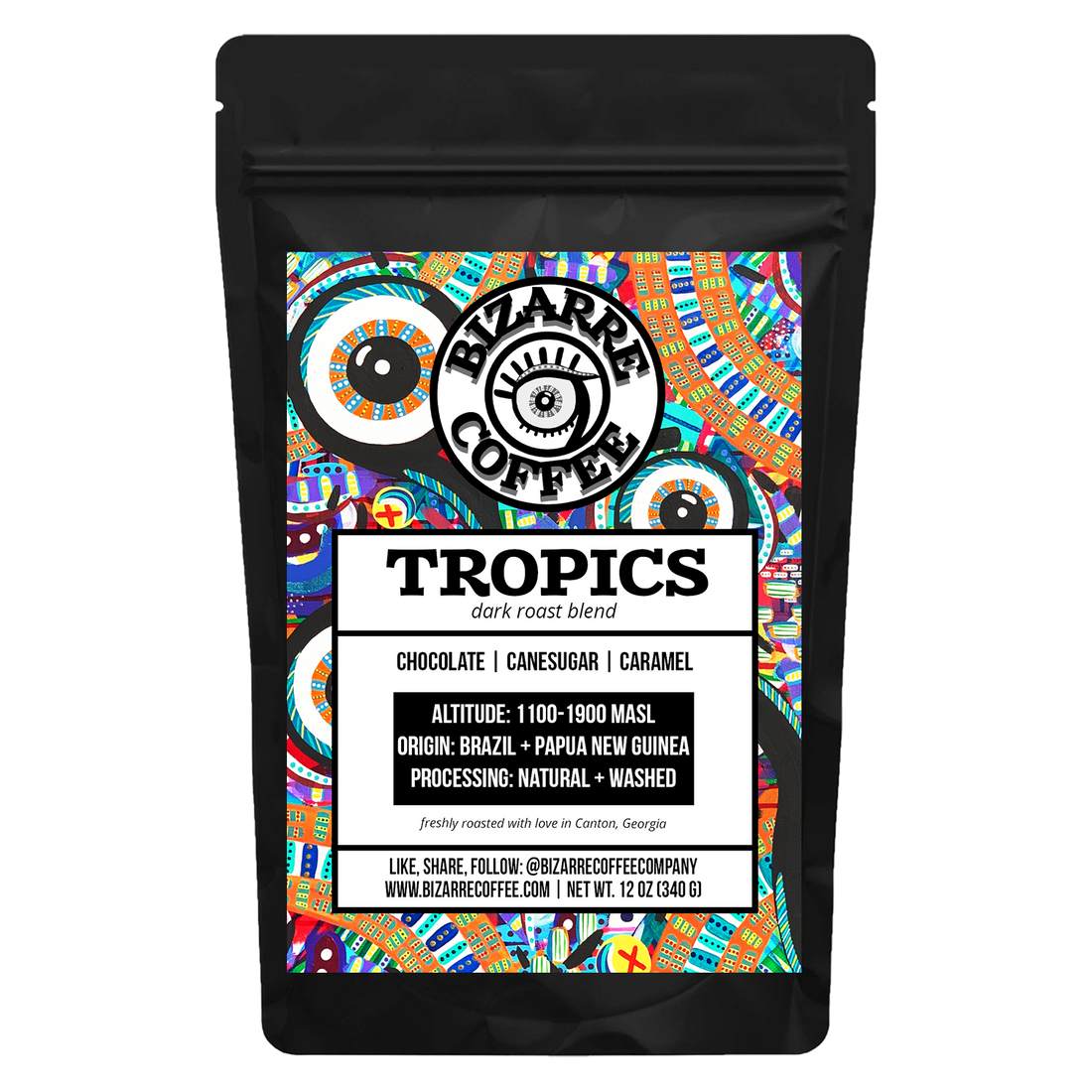Caffeine – the magical elixir that kickstarts our mornings, powers us through late nights, and rescues us from the dreaded afternoon slump. Have you ever stopped to wonder just how much caffeine is hiding in your favorite cup of coffee? In this guide, we’re taking a deep dive into the caffeinated universe, exploring what influences caffeine levels and the effects it has on our health. Get ready to learn all about different coffee drinks, brewing styles, and how to choose the coffee with the right amount of caffeine for you.
So for starters, what is caffeine?
Caffeine is a naturally occurring, bitter substance that is found in many of our favorite drinks such as teas, sodas, chocolate and most famously, coffee. As a stimulant, caffeine ramps up the activity in your brain and nervous system, while also boosting the circulation of chemicals like cortisol and adrenaline throughout your body.
In modest amounts, caffeine can leave you feeling revitalized and sharp, the reason for your boost of energy first thing in the morning. However, larger doses may trigger feelings of anxiety and disrupt your ability to sleep.
Similar to numerous other substances, caffeine tolerance can develop over time, necessitating larger doses to produce the desired effects.
How much Coffee is in a Cup of Coffee?
Your average 8-ounce cup of coffee typically contains roughly 96 milligrams of caffeine. However, precise caffeine levels can vary based on specific processing methods and brewing durations. It's worth noting that different brands may offer significantly differing amounts of caffeine in the same-sized serving.
For example, different coffee type boasts differing caffeine content:
-
Espresso: Espresso packs a punch, boasting more caffeine per ounce than your regular brew. A 1-ounce shot of espresso typically delivers around 64 milligrams of caffeine.
-
Decaf coffee: Despite its name, decaf coffee still contains a trace amount of caffeine. Through the decaffeination process, manufacturers strip away about 95% of the caffeine. Generally, an 8-ounce serving of decaf coffee contains approximately 2 milligrams of caffeine, significantly less than its regular counterpart.
-
Instant coffee: Instant coffee offers a moderate caffeine boost, with roughly 57 milligrams of caffeine in an 8-ounce cup.
Beyond coffee, various other caffeinated beverages come with their own caffeine levels:
-
8 ounces of black tea typically contains around 47 milligrams of caffeine.
- An 8-ounce serving of an energy drink packs approximately 72 milligrams of caffeine.
- A standard 12-ounce soda contains approximately 34 milligrams of caffeine.
How do Roasting Levels Impact caffeine amounts?

Many factors influence the caffeine levels in coffee beans, including bean type, roast level, and most importantly, brewing and measuring techniques. When selecting a coffee bean, it is essential to start at the source. There are two main types of coffee plants: Arabica Coffea and Robusta Coffea. Arabica beans are of higher quality and the only kind we offer. Robusta beans are easier to farm and contain twice as much caffeine as Arabica beans. Currently, there is no research indicating that the origin (Africa, Latin America, etc.) or processing method affects the caffeine content in beans.
A common misconception is that dark roasted coffees, with their bold color and robust flavor, contain the most caffeine. Conversely, some believe that lightly roasted coffee has more caffeine because it is roasted for a shorter time, thus "burning off" less caffeine. Both assumptions are incorrect. During the roasting process, coffee's caffeine content remains relatively stable. What actually changes is the taste and the caffeine level per the beans' volume and weight. As beans are roasted, they lose moisture and overall mass. Beans roasted to a dark level or past the second crack will weigh noticeably less than light roasts. This decrease in mass and density is one reason why some people believe dark roast coffees have less caffeine.
You can read more about roasting types and differences here:
What is the difference between dark, meadium, and light roast coffee?
How much caffeine is safe to consume daily?
It is safe for the average person to consume up to 400mg of caffeine daily. However, individual tolerance can vary, and this amount may be lower for someone with preexisting health conditions such as anxiety, insomnia, or heart problems. It's best to consult with a doctor if you have any health concerns regarding caffeine consumption. It's best to be aware but for the most part, it's perfectly safe to enjoy caffeine!
What are the benefits to drinking coffee?
Not to focus on the positives, coffee actually has several wonderful health benefits and can be great for us! Here are some ways that coffee is beneficial:
-
Coffee can help with brain bunction: This is due to caffeine and it's effects on the brain. After drinking coffee, caffeine then blocks an inhibitory neurotransmitter called Adenosine. When that happens, our neurotransmitters actually increase which caused an enhanced firing of neurons. Due to this, we can experience improved memory, mood, reaction times, and overall better cognitive brain function.
-
Coffee can help bmprove overall health: Studies have shown that moderate coffee intake is linked to a lower likelihood of type 2 diabetes, heart disease, liver and endometrial cancers, Parkinson's disease and depression.
-
Coffee contains essential nutrients: A single cup of coffee contains Riboflavin (Vitamin B2), Pantothenic Acid (Vitamin B5), Manganese, Potassium, Magnesium and Niacin.
-
Coffee may help with weight management: According to health studies, coffee can be helpful in managing fat storage and improving gut health, which overall can be helpful in weight control.
-
Coffee can help increase longevity: Due to it's multitude of health benefits, coffee could help extend overall life longevity. Studies have shown that consuming two cups of coffee a day has lead to an overall lower risk in death.

All in all, our favorite coffee is safe and can actually be beneficial when enjoyed in moderation. Keep on sipping your favorite Good Mood Juice! Start a coffee subscription today and explore our small-batch roasted, specialty Bizarre coffees. Make the best of your morning cup!
Blogs you might also like:











